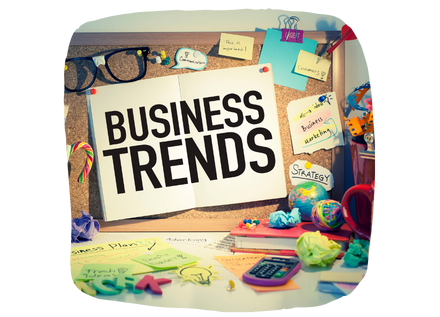
“Your competitive advantage within the workplace and your ability to drive your own career are dependent on your proactivity in engaging in ongoing career discussions with your leader.”
Conversations with your leader about your development can vary in focus from short-term development for your current role to longer-term development and career discussions. Here we’re talking specifically about those conversations with a longer-term career focus.
Career paths are no longer linear and the definition of career success and satisfaction is different for everyone. The challenge for you is to explore what success means for you and to enlist the support of your leader to open up opportunities that help you achieve that success.
But many leaders are unsure how to approach these conversations and will revert to task or project specific conversations, which tend to come more naturally and have a more concrete and immediate focus. Being able to proactively initiate and drive career conversations with your leader from your end can help form a habit between you and your leader that can have a lasting impact on your career progress. It also shows your leader that you are serious about your development and this increases your value to the organisation as an employee. Remember, the deeper the understanding your leader has of your career aspirations and goals, the more support they can provide you to help you get there.
Your competitive advantage within the workplace and your ability to drive your own career are dependent on your proactivity in engaging in ongoing career discussions with your leader. Try to hardwire these career discussions into your regular pattern of one-on-one conversations. For example, you may choose to allocate one of your weekly one on ones to career development every month. Schedule these discussions into your diary.
Below are some suggested key topics to cover in your conversations. Kendo provides activities that can be used to prepare for, and guide, these discussions.
1. Let your leader know that you would like to discuss your career development and want to set up ongoing career discussions with them.
Agree on the purpose of the career discussions, the types of things you want to discuss and what you hope to achieve from the discussions. Come prepared to every conversation with your insights, reflections, questions to ask and key discussion points so that they conversations are meaningful and have direction.


2. Discuss your current work situation
Some topics to cover include:
- How you’re currently feeling at work, including how challenged and engaged you’re feeling.
- What’s making you happy and what’s frustrating you
- How you’re feeling about the progress you are making against your development and career expectations
- What you see as your biggest achievements in your current role and how satisfied you are with what you’ve been able to achieve
- How well the experiences and skills you’re acquiring in your current role are progressing your career (i.e. what are they getting out of your current role?)
3. Talk about how you got to where you are and what’s made you successful to date
Discuss the types of experiences you’ve had, the types of organisations you’ve worked in, what motivated you to move on to new roles, and what you did or didn’t enjoy about those roles, organisations, or experiences.
This exercise can be done by drawing up a simple table during the discussion with your leader noting,’ positions held’, down one side and then identifying for each role what energised you and kept you engaged, and what brought you less satisfaction or enjoyment. The objective is then to identify common themes, interests and strengths that help you perform at your best and allow you to make your best contribution. Knowing this helps you play to those strengths and build the environment that best suits you.


4. Explore the following areas
- How you define career success
- Personal drivers and values and how they are met through the work environment
- Key interests and how these can be applied at work
- Personal strengths, including attributes, behavioural approach and personal traits that they can draw on. Ask your leader for any feedback they have about your strengths. They may have additional strengths to add.
- Current capabilities, including technical and behavioural competencies, experience, qualifications
- Capabilities needed for your aspirational or future role
- Other commitments or priorities that will impact your career decisions
- How all these factors combine to form key focus areas for your career
- Any goals or actions you have planned, either short, medium or long term, to realise these key focus areas. What are your expectations of your next step to progress your plan? What support do you need from your leader?
5. Explore any current and future organisational factors that may be relevant to your career progression
Ask your leader to provide you with information around:
- Current and future direction of the organisation and how this might impact you
- Current and future skill requirements of the team and organisation
- Structural changes which may provide opportunities for you
- Current jobs and career paths available (including those which may not be obvious) within the organisation
- How your leader views your potential for advancement
- How you can raise your profile and be more visible to key people within the organisation (including who the key people are that you should be visible to)
- Who you can access for further support (including any formal or informal mentoring opportunities you can take advantage of)


6. Discuss current trends in your industry or profession
- How you can become better informed about what’s happing in the industry
- What trends, advancements or changes your leader is aware of within the industry
- What impact these will or are already having on the industry/organisation/your role/ your career
- How you can make yourself more marketable within the industry/profession
- How you can raise your profile within the broader industry
7. Discuss any transition you may be making currently or in the near future (e.g. role moves, increased responsibilities, change in team structure, promotion, change in working conditions (full time to part time), extended leave, parental leave) with your leader, consider:
- What decisions you will need to make as part of this transition
- How the changes will impact you professionally and personally
- What plans you’re putting in place to prepare yourself for the transition
- What support you have to draw on throughout the transition period. Discuss how your leader can support you and what other resources they suggest you draw on

There’s a lot to discuss here and you won’t be able to tackle all the topics in one or two meetings. It’s a guide to help you start an ongoing, continuous conversation with your leader. Throughout these discussions update your growth plan with any new goals or actions you identify. Your plan becomes a living document that guides your discussions and helps you and your leader monitor, adjust and continue to further develop your career.
